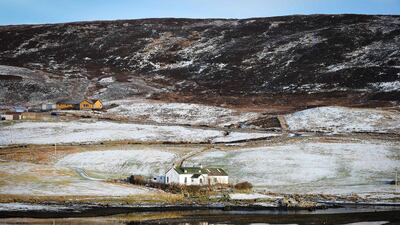Britain’s very own space race is set to lift off after a remote Scottish Island announced plans to rival the official UK Space Agency-designated launch site.
The Shetland Space Centre said it plans to develop a launch site on the isolated island of Unst in partnership with French-based ArianeGroup.
During a summer visit Unst, the Shetland’s most northerly island, was described as a “perfect location in Northern Europe” to develop a spaceport to launch small satellites.
This is despite the UK Space Agency granting £30 million (Dh143.98 million) in July 2018 to a separate site on a remote peninsula in the sparsely populated highlands in the far-north of Scotland's mainland – hundreds of miles south of the Shetland archipelago.
Shetland Space Centre claimed in May 2018 it was the UK Space Agency’s preferred location for small satellite launches.
Now a three-month feasibility study of the proposed location is to be launched by the Shetland Space Centre in partnership with ArianeGroup. The latter is a joint venture between aerospace giant Airbus and French group Safran.
“By accessing ArianeGroup’s expertise and capabilities we will be able to accelerate our application ensuring that the UK will be able to launch small satellite launch vehicles by the end of 2020,” said Frank Strang, CEO of Shetland Space Centre.
“This is an enormously exciting deal for us. ‘One small step for the UK and one giant leap for Shetland.”
The centre has previously signed Memorandums of Understanding with other industry big names such as Lockheed Martin to work on the creation of a satellite tracking and communication centre in Unst.
Proponents of the Shetland’s operation cite its northerly location as clear natural advantages because of physics and geography. They say the clear airspace and tiny population centres in the region are just some of the obvious benefits it holds.
Business secretary Greg Clarke has previously estimated the British space industry could be worth £3.8 billion (Dh18.24 billion) over the next decade.


